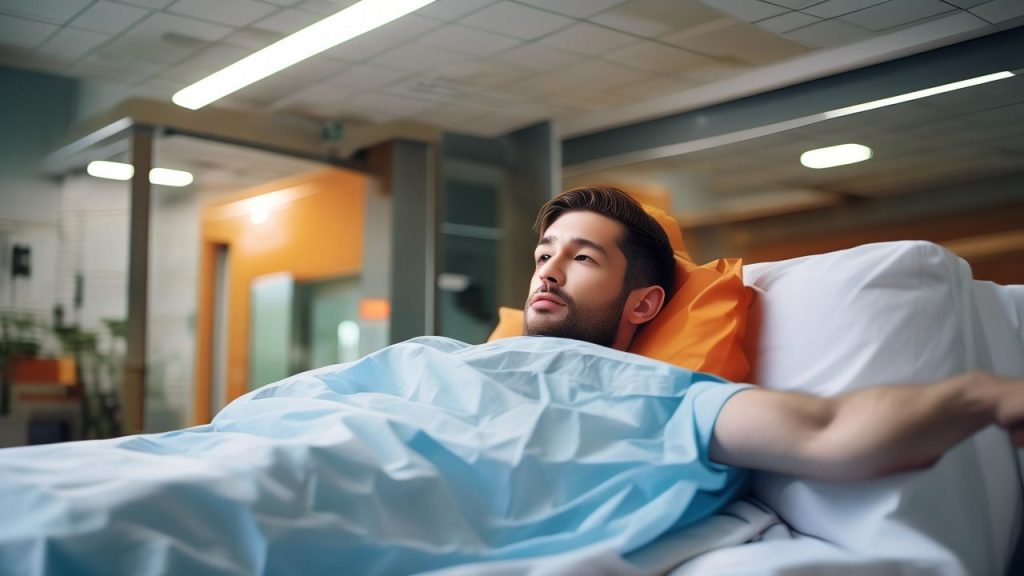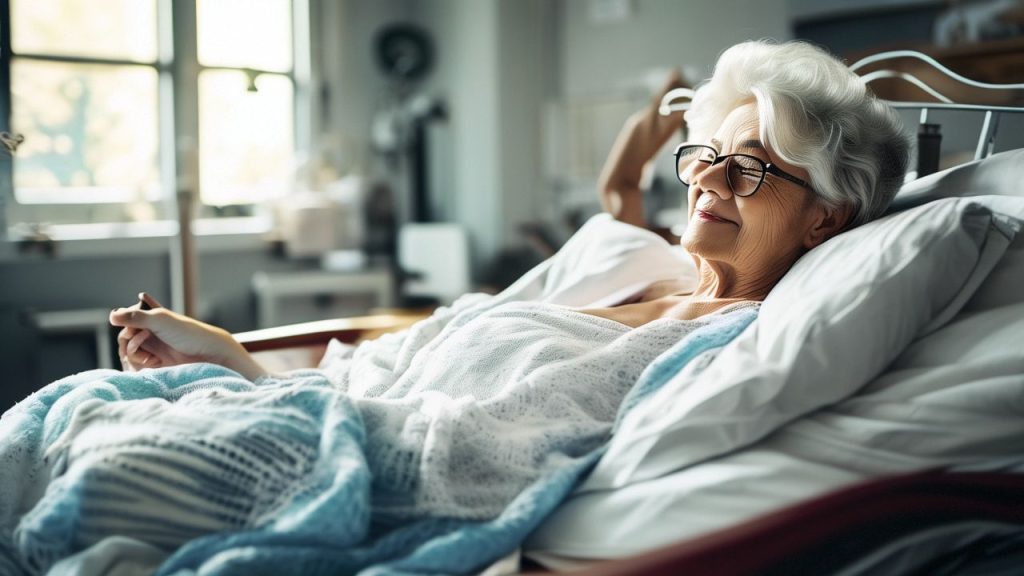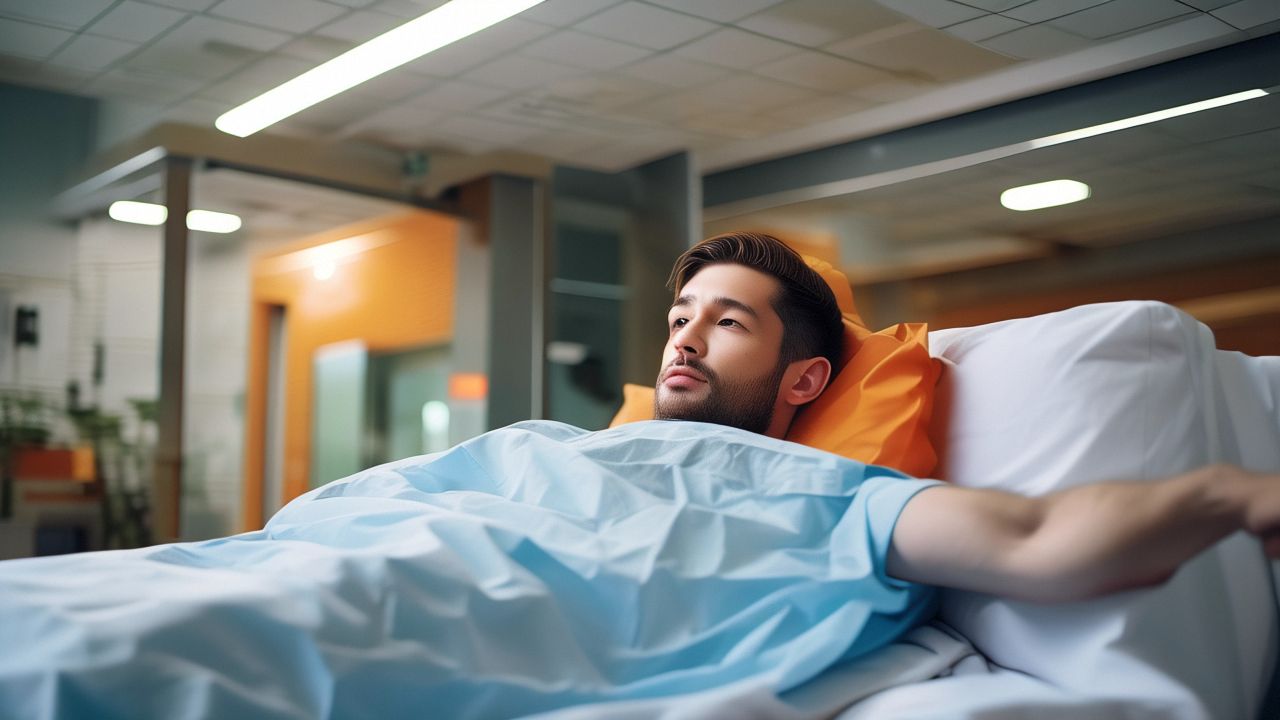My doctor recommended trazodone for sleep
Why can trazodone treat insomnia?
Trazodone is a medication that is primarily used as an antidepressant, but it is also commonly prescribed off-label for the treatment of insomnia. The mechanism by which trazodone helps to treat insomnia is not entirely clear, but it is believed to be related to its ability to enhance the action of serotonin in the brain.
Serotonin is a neurotransmitter that plays a key role in regulating sleep and mood. Trazodone is a serotonin reuptake inhibitor, meaning that it prevents the reabsorption of serotonin by the nerve cells that release it, which leads to increased levels of serotonin in the brain. This can help to promote sleep by acting on the brain’s serotonin receptors, which are involved in the regulation of sleep.

Additionally, trazodone has been found to have sedative effects, which can help to reduce the time it takes to fall asleep and decrease the number of times a person wakes up during the night. This sedative effect is thought to be due to its action on histamine receptors in the brain, as histamine is another neurotransmitter that plays a role in wakefulness.
While trazodone can be effective for treating insomnia, it may also have side effects, such as drowsiness, dizziness, and dry mouth. Additionally, it may interact with other medications, so it’s important for individuals to consult with their healthcare provider before taking trazodone for insomnia.
My doctor recommended trazodone for sleep, and I’ve noticed a significant improvement in my sleep quality.
If you’re struggling with insomnia, trazodone for sleep might be a viable option to discuss with your healthcare provider.

- John, a 45-year-old man with chronic insomnia, was prescribed trazodone for sleep by his psychiatrist. After starting the medication, he reported falling asleep more quickly and waking up less frequently during the night.
- Sarah, a 35-year-old woman with difficulty staying asleep, started taking trazodone for sleep as recommended by her primary care physician. She noticed an improvement in her sleep duration and quality, and felt more refreshed in the morning.
- Mark, a 55-year-old man with depression and co-occurring insomnia, was started on trazodone to address both his mood symptoms and sleep disturbances. He experienced relief from his insomnia symptoms and noticed an improvement in his overall mood.
- Emily, a 28-year-old woman with post-traumatic stress disorder (PTSD) and severe insomnia, was prescribed trazodone for sleep by her psychiatrist. The medication helped to reduce her nightmares and improve her sleep continuity, leading to better daytime functioning.
- Michael, a 42-year-old man with fibromyalgia and associated sleep difficulties, started taking trazodone for sleep on the advice of his rheumatologist. He reported that it helped him to achieve deeper and more restful sleep, which in turn reduced his overall pain and fatigue.
Trazodone for sleep dosage
Trazodone is often prescribed for sleep issues, and the dosage can vary depending on the individual’s needs and response. Typically, the starting dose for sleep is lower than the dose used for treating depression. Common starting doses for sleep range from 25 mg to 50 mg at bedtime. However, your healthcare provider may adjust the dose based on your response and any side effects you experience. It’s important to follow your healthcare provider’s instructions and not to exceed the recommended dosage without consulting them.
How long does it take to start working for trazodone for sleep?
The duration of trazodone treatment for insomnia can vary depending on the individual and their response to the medication. Some people may only need to take trazodone for a short period to help with acute episodes of insomnia, while others may use it long-term as part of their ongoing sleep management.

For short-term use, trazodone might be prescribed for a few weeks to several months, depending on the underlying cause of the insomnia and how quickly the individual’s sleep patterns improve. In cases where insomnia is chronic or recurring, trazodone may be prescribed for longer periods, sometimes even indefinitely, if it continues to be effective and the benefits outweigh any potential side effects.
It’s important for individuals taking trazodone for sleep to have regular follow-up appointments with their healthcare provider to assess the medication’s effectiveness and to make any necessary adjustments to the dosage or treatment plan. Additionally, since trazodone can cause dependence and withdrawal symptoms, it’s typically recommended to taper off the medication gradually under a healthcare provider’s guidance rather than stopping abruptly.
A study from Sapienza University of Rome demonstrates the effectiveness of Trazodone in treating insomnia.
Research Process
- Objective:
- a.To evaluate the efficacy and safety of Trazodone in the treatment of primary insomnia.
- Study Design:
- a.A randomized, double-blind, placebo-controlled clinical trial.
- b.The study duration was 8 weeks.
- Participants:
- a.120 patients diagnosed with primary insomnia according to DSM-5 criteria were recruited.
- b.Inclusion criteria: Aged between 18 and 65 years, with insomnia symptoms lasting at least 3 months.
- Randomization:
- a.Participants were randomly assigned to two groups: Trazodone group (60 people) and placebo group (60 people).
- b.The Trazodone group took 50 mg of Trazodone nightly before bed, while the placebo group took a visually identical placebo.
- Data Collection:
- a.Primary outcome measures: Sleep latency (SL), total sleep time (TST), sleep efficiency (SE).
- b.Secondary outcome measures: Sleep quality score (assessed by the Pittsburgh Sleep Quality Index (PSQI)), daytime functioning (assessed by the Epworth Sleepiness Scale (ESS)).
- c.Data collection time points: Baseline, Week 4, and Week 8.
- Data Analysis:
- a.Statistical analysis was performed using SPSS software.
- b.Repeated measures ANOVA was used to assess differences between groups and time points.
- c.Chi-square test was used to assess the incidence of adverse events.
Research Findings
- Efficacy:
- a.Sleep Latency (SL): The Trazodone group showed a significant reduction in sleep latency at Week 4 and Week 8 (an average reduction of 20 minutes at Week 8, p < 0.01), while the placebo group showed no significant change.
- b.Total Sleep Time (TST): The Trazodone group showed a significant increase in total sleep time (an average increase of 45 minutes at Week 8, p < 0.01), while the placebo group showed no significant change.
- c.Sleep Efficiency (SE): The Trazodone group showed a significant improvement in sleep efficiency (an increase of 10% at Week 8, p < 0.01), while the placebo group showed no significant change.
- d.Sleep Quality Score (PSQI): The Trazodone group showed a significant decrease in PSQI scores (an average decrease of 3 points at Week 8, p < 0.01), while the placebo group showed no significant change.
- e.Daytime Functioning (ESS): The Trazodone group showed a significant decrease in ESS scores (an average decrease of 2 points at Week 8, p < 0.05), while the placebo group showed no significant change.
- Safety:
- a.Common side effects in the Trazodone group included dry mouth (15%), dizziness (10%), and daytime drowsiness (8%).
- b.No serious adverse events were reported, and the incidence of adverse events did not differ significantly between the two groups.
- Conclusion:
- a.Trazodone is effective in the short-term treatment of primary insomnia, improving sleep latency, total sleep time, sleep efficiency, and sleep quality.
- b.Trazodone is well-tolerated, with mild and manageable common side effects.





Pingback: Trazodone for dogs requires veterinary guidance, precise dosing, and vigilant monitoring for safe and effective anxiety management - Disease and Health